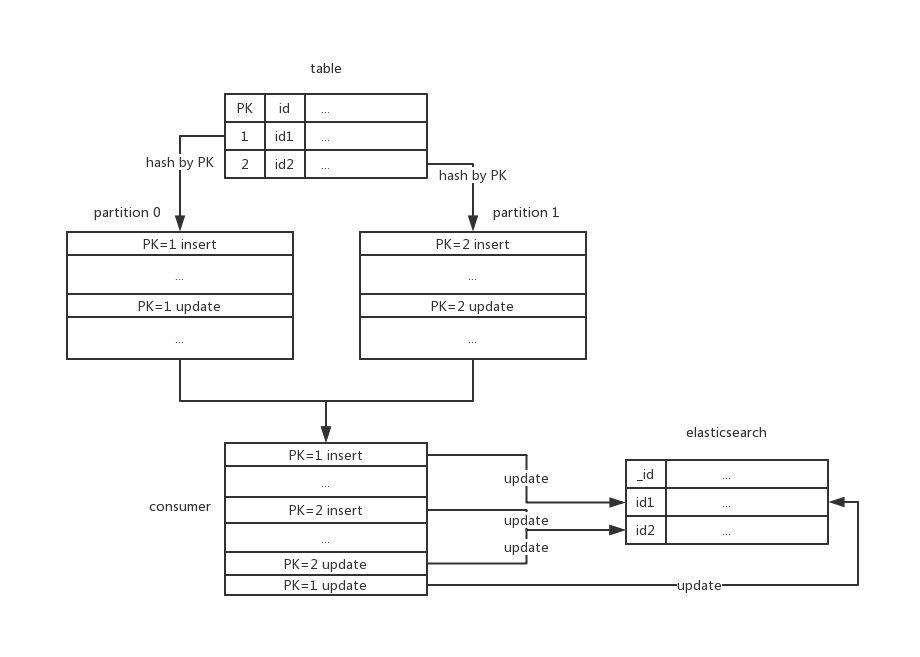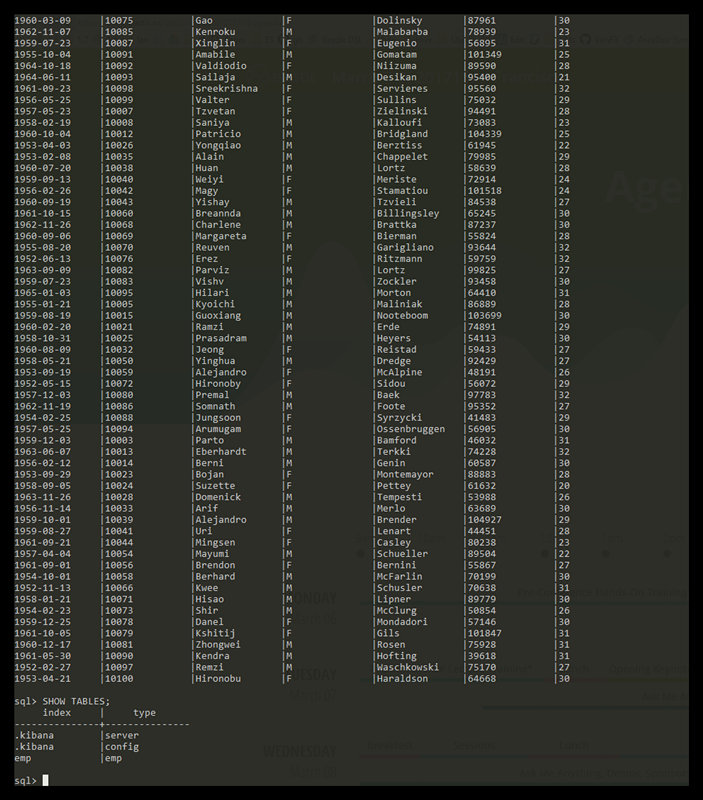文章目录
本系列文章将展示ElasticSearch中23种非常有用的查询使用方法。由于篇幅原因,本系列文章分为六篇,本文是此系列的第五篇文章。欢迎关注大数据技术博客微信公共账号:iteblog_hadoop。
《23种非常有用的ElasticSearch查询例子(2)》
《23种非常有用的ElasticSearch查询例子(3)》
《23种非常有用的ElasticSearch查询例子(4)》
《23种非常有用的ElasticSearch查询例子(5)》
《23种非常有用的ElasticSearch查询例子(6)》
Function Score: Field Value Factor
在某些场景下,你可能想对某个特定字段设置一个因子(factor),并通过这个因子计算某个文档的相关度(relevance score)。这是典型地基于文档(document)的重要性来抬高其相关性的方式。在下面例子中,我们想找到更受欢迎的图书(是通过图书的评论实现的),并将其权重抬高,这里可以通过使用field_value_factor来实现:
/////////////////////////////////////////////////////////////////////
User: 过往记忆
Date: 2016-10-02
Time: 22:57
bolg: https://www.iteblog.com
本文地址:https://www.iteblog.com/archives/1768.html
过往记忆博客,专注于hadoop、hive、spark、shark、flume的技术博客,大量的干货
过往记忆博客微信公共帐号:iteblog_hadoop
/////////////////////////////////////////////////////////////////////
curl POST :9200/iteblog_book_index/book/_search
{
"query": {
"function_score": {
"query": {
"multi_match" : {
"query" : "search engine",
"fields": ["title", "summary"]
}
},
"field_value_factor": {
"field" : "num_reviews",
"modifier": "log1p",
"factor" : 2
}
}
},
"_source": ["title", "summary", "publish_date", "num_reviews"]
}
[返回结果]
{
"took": 26,
"timed_out": false,
"_shards": {
"total": 3,
"successful": 3,
"failed": 0
},
"hits": [
{
"_index": "bookdb_index",
"_type": "book",
"_id": "1",
"_score": 0.44831306,
"_source": {
"summary": "A distibuted real-time search and analytics engine",
"num_reviews": 20,
"title": "Elasticsearch: The Definitive Guide",
"publish_date": "2015-02-07"
}
},
{
"_index": "bookdb_index",
"_type": "book",
"_id": "4",
"_score": 0.3718407,
"_source": {
"summary": "Comprehensive guide to implementing a scalable search engine using Apache Solr",
"num_reviews": 23,
"title": "Solr in Action",
"publish_date": "2014-04-05"
}
},
{
"_index": "bookdb_index",
"_type": "book",
"_id": "3",
"_score": 0.046479136,
"_source": {
"summary": "build scalable search applications using Elasticsearch without having to do complex low-level programming or understand advanced data science algorithms",
"num_reviews": 18,
"title": "Elasticsearch in Action",
"publish_date": "2015-12-03"
}
},
{
"_index": "bookdb_index",
"_type": "book",
"_id": "2",
"_score": 0.041432835,
"_source": {
"summary": "organize text using approaches such as full-text search, proper name recognition, clustering, tagging, information extraction, and summarization",
"num_reviews": 12,
"title": "Taming Text: How to Find, Organize, and Manipulate It",
"publish_date": "2013-01-24"
}
}
]
}
Function Score: Decay Functions
在使用Decay Functions之前,我们需要了解Decay Functions的一些基础。Decay Functions主要有三种:分别是linear、exp以及gauss,分别用于操作数字字段(numeric fields)、日期字段(date fields)以及经/纬度的地理点。这三种Decay Functions都接收以下四种参数:
1、origin:中心点,或者是该字段最有可能的值。所有落在中心点的文档的得分(_score)都是1.0;
2、scale:衰减率。指的是一个文档距离origin获得_score的需要减少多少;
3、decay:衰减。指的是一个文档在相对于origin的scale距离应该得到的_score,默认值是0.5;
4、offset:偏移,所有落入-offset < = origin <= +offset范围的值都将得到1.0的_score。
下图展示了这三种Decay Functions的区别:
gauss 衰减速度先慢后快再慢,exp 衰减速度先快后慢,lin 直线衰减,在0分外的值都是0分,如何选择取决于你想要你的score以什么速度衰减。下面例子中我们搜索标题或者摘要中包含search engines的图书,并且希望图书的发行日期是在2014-06-15中心点范围内,如下:
curl POST :9200/iteblog_book_index/book/_search
{
"query": {
"function_score": {
"query": {
"multi_match" : {
"query" : "search engine",
"fields": ["title", "summary"]
}
},
"functions": [
{
"exp": {
"publish_date" : {
"origin": "2014-06-15",
"offset": "7d",
"scale" : "30d"
}
}
}
],
"boost_mode" : "replace"
}
},
"_source": ["title", "summary", "publish_date", "num_reviews"]
}
[返回结果]
{
"took": 26,
"timed_out": false,
"_shards": {
"total": 3,
"successful": 3,
"failed": 0
},
"hits": [
{
"_index": "bookdb_index",
"_type": "book",
"_id": "4",
"_score": 0.27420625,
"_source": {
"summary": "Comprehensive guide to implementing a scalable search engine using Apache Solr",
"num_reviews": 23,
"title": "Solr in Action",
"publish_date": "2014-04-05"
}
},
{
"_index": "bookdb_index",
"_type": "book",
"_id": "1",
"_score": 0.005920768,
"_source": {
"summary": "A distibuted real-time search and analytics engine",
"num_reviews": 20,
"title": "Elasticsearch: The Definitive Guide",
"publish_date": "2015-02-07"
}
},
{
"_index": "bookdb_index",
"_type": "book",
"_id": "2",
"_score": 0.000011564,
"_source": {
"summary": "organize text using approaches such as full-text search, proper name recognition, clustering, tagging, information extraction, and summarization",
"num_reviews": 12,
"title": "Taming Text: How to Find, Organize, and Manipulate It",
"publish_date": "2013-01-24"
}
},
{
"_index": "bookdb_index",
"_type": "book",
"_id": "3",
"_score": 0.0000059171475,
"_source": {
"summary": "build scalable search applications using Elasticsearch without having to do complex low-level programming or understand advanced data science algorithms",
"num_reviews": 18,
"title": "Elasticsearch in Action",
"publish_date": "2015-12-03"
}
}
]
}
Function Score: Script Scoring
如果内置的scoring functions满足不了你的需求,我们就可以使用Script Scoring,通过指定一个Groovy script来计算分数。在下面的例子中,我们写了一个脚本首先考虑publish_date,其次再考虑图书的评论数,因为比较新出版的图书可能没有多少评论数,但是我们并不能不考虑它们。计算分数的脚本如下:
publish_date = doc['publish_date'].value
num_reviews = doc['num_reviews'].value
if (publish_date > Date.parse('yyyy-MM-dd', threshold).getTime()) {
my_score = Math.log(2.5 + num_reviews)
} else {
my_score = Math.log(1 + num_reviews)
}
return my_score
然后查询的时候使用script_score 参数:
curl POST https://www.iteblog.com:9200/iteblog_book_index/book/_search
{
"query": {
"function_score": {
"query": {
"multi_match" : {
"query" : "search engine",
"fields": ["title", "summary"]
}
},
"functions": [
{
"script_score": {
"params" : {
"threshold": "2015-07-30"
},
"script": "publish_date = doc['publish_date'].value; num_reviews = doc['num_reviews'].value; if (publish_date > Date.parse('yyyy-MM-dd', threshold).getTime()) { return log(2.5 + num_reviews) }; return log(1 + num_reviews);"
}
}
]
}
},
"_source": ["title", "summary", "publish_date", "num_reviews"]
}
[返回结果]
{
"took": 26,
"timed_out": false,
"_shards": {
"total": 3,
"successful": 3,
"failed": 0
},
"hits": {
"total": 4,
"max_score": 0.8463001,
"hits": [
{
"_index": "bookdb_index",
"_type": "book",
"_id": "1",
"_score": 0.8463001,
"_source": {
"summary": "A distibuted real-time search and analytics engine",
"num_reviews": 20,
"title": "Elasticsearch: The Definitive Guide",
"publish_date": "2015-02-07"
}
},
{
"_index": "bookdb_index",
"_type": "book",
"_id": "4",
"_score": 0.7067348,
"_source": {
"summary": "Comprehensive guide to implementing a scalable search engine using Apache Solr",
"num_reviews": 23,
"title": "Solr in Action",
"publish_date": "2014-04-05"
}
},
{
"_index": "bookdb_index",
"_type": "book",
"_id": "3",
"_score": 0.08952084,
"_source": {
"summary": "build scalable search applications using Elasticsearch without having to do complex low-level programming or understand advanced data science algorithms",
"num_reviews": 18,
"title": "Elasticsearch in Action",
"publish_date": "2015-12-03"
}
},
{
"_index": "bookdb_index",
"_type": "book",
"_id": "2",
"_score": 0.07602123,
"_source": {
"summary": "organize text using approaches such as full-text search, proper name recognition, clustering, tagging, information extraction, and summarization",
"num_reviews": 12,
"title": "Taming Text: How to Find, Organize, and Manipulate It",
"publish_date": "2013-01-24"
}
}
]
}
}
注意:为了使用动态的脚本,我们必须先在 config/elasticsearch.yaml 文件中做好相应的配置,具体请参见:https://www.elastic.co/guide/en/elasticsearch/reference/current/modules-scripting.html。
原创文章版权归过往记忆大数据(过往记忆)所有,未经许可不得转载。
本文链接: 【23种非常有用的ElasticSearch查询例子(6)】(https://www.iteblog.com/archives/1768.html)









